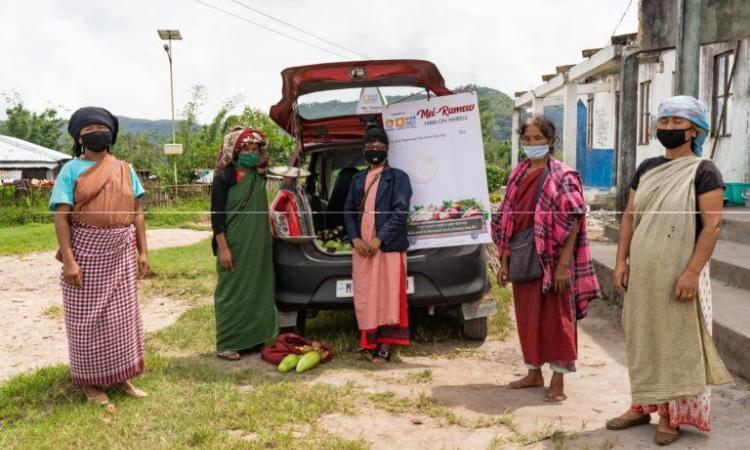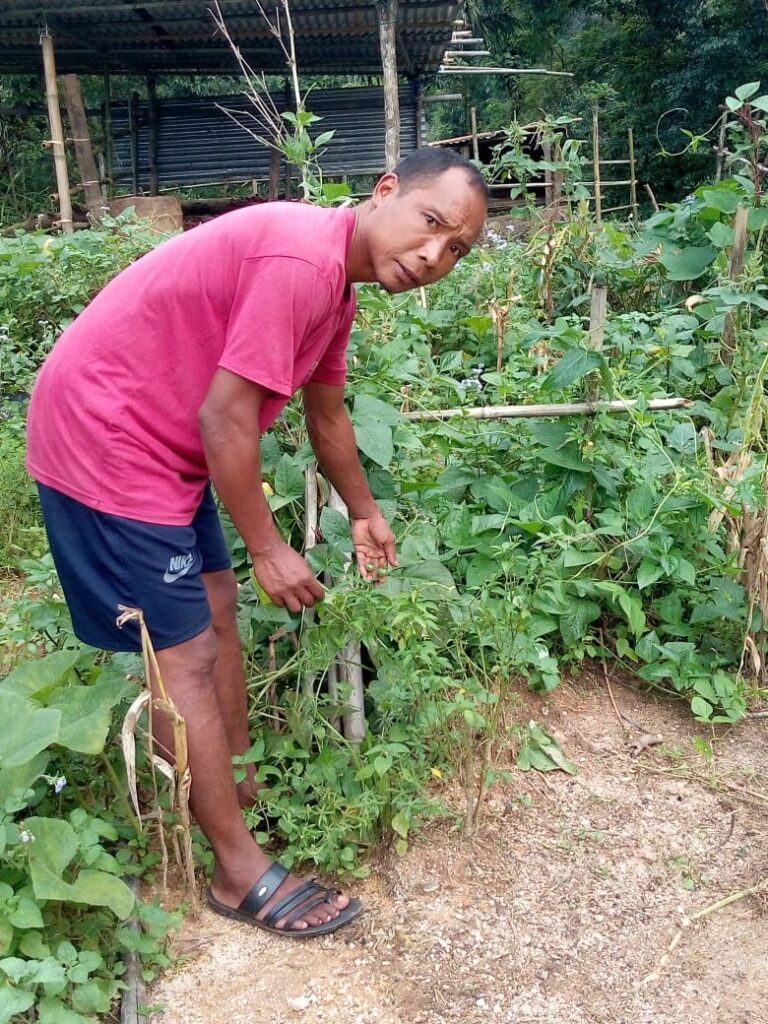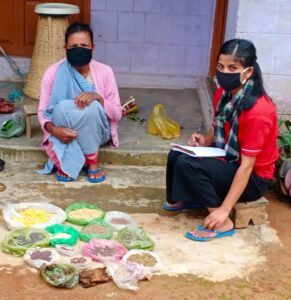
The world is hit by a global pandemic, taking everyone by storm and severely impacting various regions. COVID-19 has disrupted the economy throughout the world with small farmers being particularly vulnerable as they lack base capital to tide over the lull in the economy.
Closure of regular markets or their partial functioning subject to stipulated government protocols has caused great economic hardship to many. This, however, has not deterred the self-reliant indigenous farmers. They have withstood this test of time and have come out with innovative solutions to tackle the crisis with the support of NESFAS (The North East Slow Food and Agrobiodiversity Society), a not-for-profit organization with its head-office in Shillong, Meghalaya that works to promote, defend and revive the indigenous food systems in North East India.
NESFAS is working in 130 villages of Meghalaya and Nagaland and is currently implementing a Rural Electrification Corporation (REC) Foundation-funded project 'No one shall be left behind: Biodiversity for food, nutrition and energy security' for 3000 households.
At present, NESFAS is engaged with small scale indigenous women farmers who are mostly practising shifting cultivation. Some are also engaged with a more settled agricultural system like paddy and bund or terrace cultivation. These farmers keep local seeds which are passed on to them by their elders. Though the local seeds are slowly disappearing, special efforts are being made to revive them with the help of activities like seed exchange programmes and the establishment of community-level seed banks.

These farmers usually sell their produce in weekly local markets. Some hire a small space and some make temporary arrangements and vend on floors and pavements. They also sell the produce to traders who come and buy the products. However, because of COVID-19, this way of selling was highly affected.
One of the local solutions devised to tackle the regular market disruption and to overcome the livelihood challenges is the launching of an initiative called the ‘Farm on wheels’. This timely initiative is a platform for farmer groups to sell their produce directly to consumers and at the same time, create sustainable livelihood opportunities for themselves.
In fact, it is literally a vehicle that the farmer groups hire to sell fresh local produce once a week or whenever the produce is ready. Around 200 farmers/ 30 farmer groups spread in various districts of Meghalaya got involved. These farmers hire a vehicle. No groups own a vehicle still, but the plan is to purchase in the future from their group savings.
The farmers map out the market days and accordingly make a plan. Usually, the 'Farm on wheels' is operative twice a week. From each group, only 1 to 2 farmers accompany the vehicle. This is done to ensure cost savings. NESFAS has helped these farmer groups with promotional material, some seed money and trained them on bookkeeping.
In fact, these small scale indigenous farmers grow a variety of produce. Some produce is also foraged from the wild. The produce that is marketed includes a variety of foraged wild edibles, cultivated vegetables like potatoes, carrots, beans and other seasonal vegetables, fruits, and pulses. The farmer groups associated with NESFAS are making use of the 'Farm on wheels' platform. They are also selling in the local markets as COVID-19 protocols are easing down.
This initiative aims at allowing businesses to function while adhering to social distancing norms and actually take the market to the consumer. It ensures the urgent need to safeguard domestic food security and also the ability to market their local produce right from buying to selling.

However, the challenge faced with regard to tradeable quantities as most of the small scale farmers have limited quantities and sell only the surpluses. Even after aggregation, they realise small quantities thereby limiting the number of visits to the market.
In doing so, this initiative has set an example to all other farmer groups collaborating with NESFAS in Meghalaya and encouraged them to adopt it and take it forward in their areas. In addition to the 'Farm on wheel' initiative, some groups in West Jaintia Hills of Meghalaya, with the help of the NESFAS partner NGO - Society for Urban and Rural Empowerment (SURE) has bridged the gap between farmers and consumers with a local online platform called Syllad which enables the sale of vegetables online.
SURE coordinates the process between the farmer's groups and the online Syllad initiative. SURE notifies Syllad of the availability of produce and helps in procuring the produce from the farmers. The produce is sold under the tab - Fruits and Vegetables on the Syllad online store. For more details, please visit the website.
This partnership also helped deliver the goods to the homes of the community members in both urban and rural areas. Farmers are also now putting in an extra effort to cultivate healthy local produce in their kitchen gardens/home gardens to increase production and are sharing local seeds with other members of the community.
In Garo Hills, indigenous farmer groups have advocated the need for diverse kitchen gardens amongst community members. They are emphasizing clean, local and nutrient-rich food for good immunity in our fight against the COVID-19 virus besides safeguarding domestic food security and livelihood sustenance.
COVID-19 in some way has highlighted the importance of dependency on local diversity for food and livelihood. It has empowered the local farmers to strive for self-reliance and self-sufficiency, something that the indigenous farmers have always been advocating but had lost its significance in the day of the mass-production centric industrial agricultural system.
The article was first published by LEISA India.